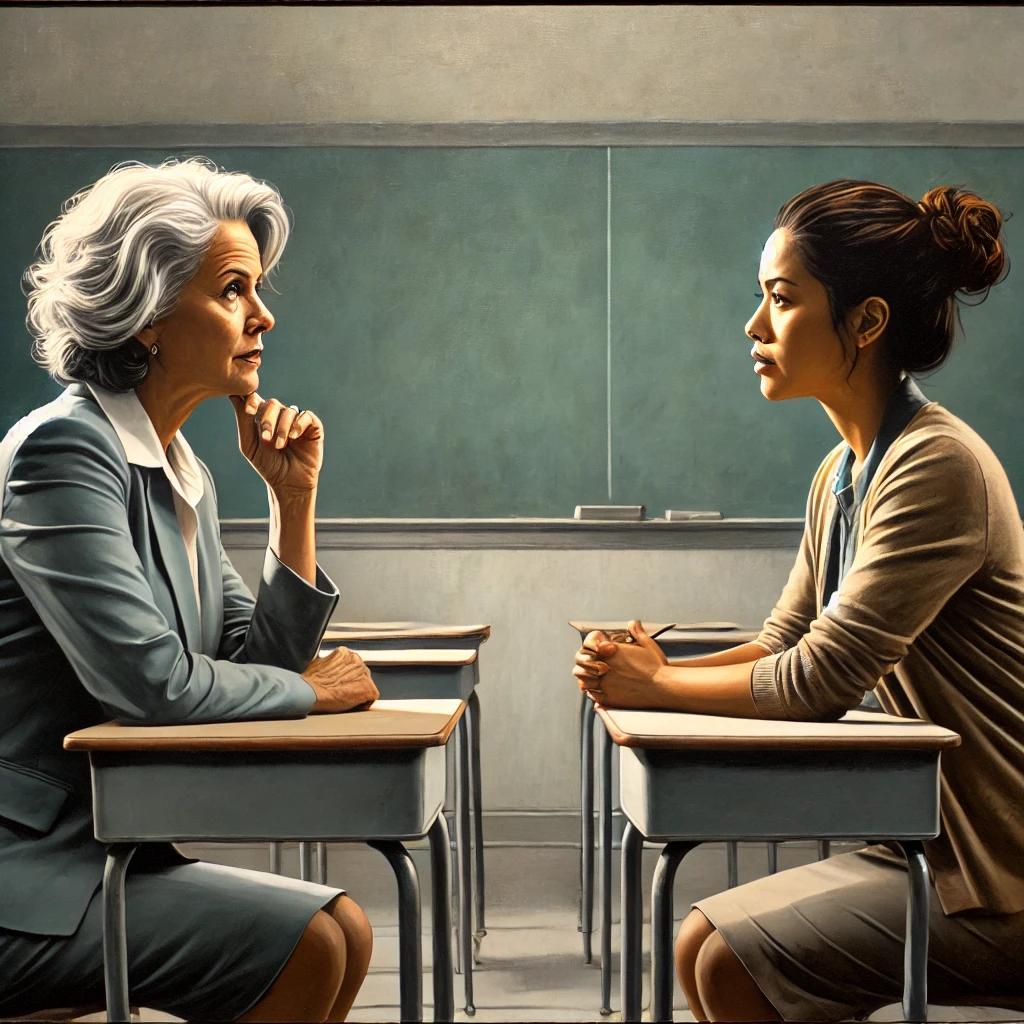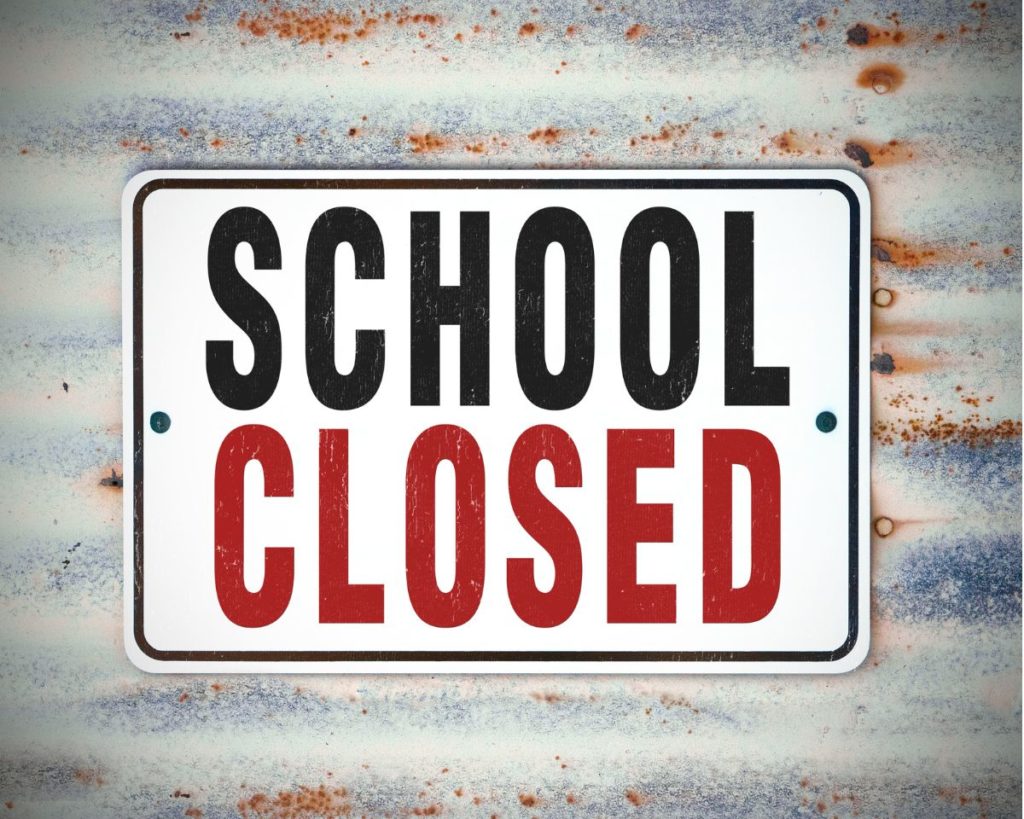Editor’s note: This is the monthly contribution from Boardhawk columnist Dr. Aaron Massey
I’ve been spending a lot of time lately listening, questioning, and discussing what new teachers believe about education.
And I’ve learned a thing or two from the 20-40-year teaching vets; in those same hallways but with a different discourse.
What I know about conversations among teachers is that their discourse tends to be both kept in-house and has a felt impact on schools, national discourse, and how education sees itself as a whole.
When I was a teacher, our lounge was dominated by talk of this new Common Core thing, how difficult it would be, and how it might impact students. That was our issue of the decade.
In fact, each new crop of teachers has come into education in different decades with different problems coloring our ethos.
Every new generation of teachers goes through extraordinary circumstances that are unique in their own respects yet no less extraordinary in magnitude and impact.
As such, there exists an opportunity to share those experiences in a way that builds our collective impact: Both new/newer teachers and vets in shared discourse to make impactful gains for students.
And while there exists an opportunity to share, that opportunity comes with a cost:
Uncomfortable, productive conversations. I’ll start us off.
New teachers, I’m going to upset you but bring you back into the fold in a respectful way.
Vets, I’m going to upset you last because you earned that deference and then bring you back into the fold in a respectful way. (That’s what I like to call fair).
For new/newer teachers: Toughen up and do dope things for kids
Respectfully, calm down and do dope things for kids. I promise that we older educators in urban schools deeply understand that this job comes with seemingly insurmountable world/life challenges that have impacted/still impact our mental health. Without developed mental health structures, we knew we still had to teach.
Teachers were teaching when race riots broke out. Segregation. Desegregation. Mike Brown. Teachers were teaching.
Mrs. Dilliard was teaching my eighth-grade class when the first plane hit the Twin Towers on 9/11. You think that impacted her? You think that impacted her mental health? I’d say so. The difference is that her generation of teachers had limited structures to address teacher mental health.
As such, they pushed through. I’m not saying you should just push through. I’m saying that they taught and inspired without the structures that exist for you today. You have resources and structures that they didn’t have.
I love that for you and I hope you take full advantage of the vast resources education has dedicated to mental health. In case you don’t know, new/newer teacher whom I respect and love and don’t want smoke with: You have therapists ready and willing to support you in your toughest situation, in your least tough situation, and every space in between that.
You have time that you can ask for to get yourself reset in ways that will support your continuity and centering. You have refined human resource policies that take into account the ways in which older teachers struggled.
I am legitimately willing to connect any of you new/newer teachers with the just-right resource for your mental health needs because that’s just how important I know mental health is for teachers.
And while you work through that, don’t let the shade of unprecedented times absolve you of your responsibility to do dope things for kids.
When you say that your mental health is challenged, we intimately understand what you mean. It was under similar, extraordinary conditions that Mrs. Dilliard had to do dope things for kids. She wasn’t ready for the moment because no one was. But she took seriously her responsibility to inspire us to dream through pain.
Imagine yourself a young Professor McGonagall (RIP) in the teacher’s lounge at Hogwarts. You’ve been grading papers all night. The next morning, Dumbledore tells you have a new student. And he has this beef with “THOU WHO SHALL NOT BE NAMED.” No Malfoy, we have to maintain high expectos.
I added that joke to soften you up for what I’ve said is required for progress in schools: uncomfortable, productive conversation. And there is something I need to tell you that may very well make you uncomfortable, yet it still remains productive, given the enormous tasks we signed up for as believers in the (Harry) power of education:
Toughen up.
Progress in education is a movement. A process that requires unwavering resolve. That’s who you signed up to work with. A group of folks crazy enough to believe that we can improve this world by preparing students to lead it. That requires and has always required the new class of teachers to lead with ferocity, curiosity, and belief.
How did teachers get students to believe in education in Tulsa, Oklahoma after race riots? They understood the responsibility despite all odds.
So when I say calm down and do dope things for kids, I mean use every resource you have at your disposal towards making the impossible a reality. And if you are fed up with the systems that dominate education (i.e. discipline structures, staffing structures, schedule structures), plan something about it.
Plan a new curriculum, plan a new scope and sequence, plan a conversation, plan a meeting, plan a club, plan a school, plan a non-profit, plan an event. It’s your innovation that’s needed to push us towards a productive and equitable future.
Simply put, working through your mental health struggles and doing dope things for kids are not mutually exclusive. Both can, will, and must exist at the same time. I know because there are veteran teachers that did it.
But it’s not all on new/newer teachers.
For 20-40-year vets: Don’t get jaded
Respectfully, stop complaining and start community-building.
There used to exist a culture in education where if you were a teacher that could manage your classroom (not get results, just manage the room) you were given respect from colleagues. You were invited to the happy hour. You were a part of the “in crowd” of teachers.
But if you were a teacher that couldn’t manage your classroom, you were talked about behind your back, made fun of by teachers to students and peers, and not invited to the happy hour spot. You were on the outside looking in.
Uncomfortable statement: That culture still exists today and it alienates young teachers. When a teacher doesn’t, yet, know how to manage a classroom for example, the exasperation in your voice when you see them struggling signals disappointment. And that’s a missed opportunity.
No matter how you entered into education, you struggled in some form or fashion and the super-vets (41+ years in service) laughed a little and then helped you. They didn’t complain.
In my first year of teaching, Mrs. Anderson saw me milling about in the office trying to get my code to work for the copier. She didn’t complain that I was taking up so much time. She laughed and taught me how to enter my printing code correctly.
And now for some uncomfortable, productive conversation:
My 20-40-year teaching vets, whom I respect and love and don’t want smoke with:
We have grown tired and impatient in the same way that we accused teachers that came before us. Disillusioned by the lack of progress, we have found comfort in the problems that we once were fired up to solve.
Our generation used to judge the teachers that taught straight out of the book. (Be honest). How could they do that when all of these “achievement gaps” exist?
But now we are doing the same thing. Children aren’t growing in math but they were mostly quiet during the assembly. Only two parents showed up to Parent Teacher Conferences but we had a great homecoming.
We even go so far as to use that most damning phrase: “Well, at least…”
Well, at least they didn’t fight today. Well, at least we get a break soon. Well, at least they came to credit recovery.
That’s a missed opportunity. If you are a 20-40-year vet, you have the ability to put the young teachers on game (without complaining). Don’t take for granted that these young teachers were legitimately college students drinking Natty Lights in a dimly lit basement. Then a few weeks later, they were teachers.
They know stuff. Like how to balance a chemical equation. But they might not know how to:
- Lesson plan as effectively as you. Teach them without complaining.
- Make copies. Teach them without complaining.
- Use their planning time effectively. Teach them without complaining.
- Talk to parents respectfully yet assertively. Teach them without complaining.
- Add the ones you know I’m missing.
It is this judgment-free support that builds community with these young teachers that have a refreshing energy, bold ideas, and hope. Abandon this selectively inclusive culture. Young teachers don’t need to be excellent in behavior management to garner respect from their colleagues. They need that respect to help understand the magnitude of their mandate as a teacher.
Our generational differences as educators provide an opportunity to learn from each other instead of being yet another factor dividing us. That takes uncomfortable, productive conversations.
Here are a few sentence stems to have such a conversation:
- “I like that idea but I’m not sure I see a clear vision for it in this context, tell me more…”
- “I tried lesson planning exactly how you told me to do it but it’s taking me triple the amount of time, can you help me…”
- “Can I have 10 minutes in our department meeting to explain an idea I think might help our team?”
Across the country, let’s add the norm of having uncomfortable, productive conversations in our professional developments, in our teacher conversations, in our department and grade level meetings, etc.
What can come from that is progress for children. And that’s why we all are here.




